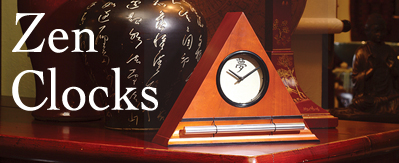
The Zen Alarm Clock transforms mornings, awakening you gradually with a series of gentle acoustic chimes Once you use a Zen Clock nothing else will do
Anyone who’s ever experienced a fitful night of sleep knows that “just relax” is easier said than done. But do-it-yourself meditation practices may help you prepare for rest, and put worries or discomfort behind you.
These techniques work best when done right before bed, in a quiet, calming environment. But you can also practice them several times a day, recommends Joyce Walsleben, PhD, associate professor at New York University School of Medicine.
“If you can keep your stress levels under control during the day, you’ll sleep better at night,” Walsleben says. “You can even do them at your desk or on the train.”
Abdominal breathing
Breathing from the abdomen and putting your attention on those breaths can help you relax both during the day and in bed at night. Some people may enjoy lying in a dimly lit room, closing their eyes, or listening to soft music while focusing on their out breaths.
While sitting or lying in bed, try placing your hands on your belly. “When you breathe in and breathe out, your hands may gently move,” says Kathy Doner, MD, who has a full-time hypnotherapy practice in Sebastian, Fla. “Focusing on this movement gets your mind off of your busy thoughts and onto your body. You can distract yourself and bring yourself to a different place. It’s very calming.”
Guided imagery
Some people imagine a calm scene to help them wind down at the end of the day. There are no rules about what you should imagine, so long as it’s calming. Although clouds, the ocean, and mountains are common choices, you can focus on something as general or as specific as you want.
“I had a patient who liked to picture his office—brushing everything off his desk and going to sleep,” Walsleben says. “Other people enjoy visualizing that they’re blowing bubbles. They put the stick in the jar and watch every bubble go over a field until the jar is empty.”
Pick a place that feels safe, and, using your imagination, invite any or all of your senses to explore it. “The brain doesn’t always know the difference between pretend and real,” says Dr. Doner. “If you watch a scary movie, your adrenaline might go up, just as if you imagine eating something vividly enough, you might start to salivate.”
Guided imagery can be done alone or with a specialist, such as a sleep doctor, cognitive-behavioral therapist, or hypnotherapist, or by using a tape or CD—but even when prompted by an instructor, the patient should still be the guide. “They need to imagine someplace comfortable and peaceful,” says Dr. Doner. “I don’t know where they need to go; the ocean may seem peaceful for one person, but traumatic for another.”

Waking up in the morning should be as pleasant as falling asleep at night. The Zen Alarm Clock's gradual, gentle awakening is transformative.
Mindful meditation
Focusing on different aspects of your life before bed can help you earn your rest, if you’re able to let those thoughts go. “You need to look at one thing at a time, which slows things down,” says Walsleben. “Focus on an issue in your life, then let it go. The major learning experience here is letting go.”
For some people, it may help to write in a journal during the day. “For 15 minutes take those issues that run through your head at night and write them down,” says Walsleben. “Then for the next 15 minutes make a plan and write that down too. At night when the lights are off, you can’t do anything about it, but by processing things in the daytime, you can.”
Counting down
While lying in bed, start by gazing upward. “A little eye strain relaxes you,” says Dr. Doner. Take an abdominal breath and hold it, and on the out breath, let everything relax. Repeat one or two times. You might then try imagining yourself walking down a flight of stairs or a gentle hill while counting down from 10 or 20, each number signifying your movement to a lower step, exhaling with each imaginary step.
You can also weave a number of these techniques together, Dr. Doner says. “You might start with your belly breath,” she says, “then go to progressive relaxation, then down the stairs, then go to your peaceful place. You want to give people a lot of things to try.”
One of the ultimate Zen like experiences is waking-up from a great slumber refreshed and energized. Your mind and body are harmoniously one, both alert and focused. Having a refreshed mind and body are two keys to a natural and Zen lifestyle. Waking up in the morning should not be a loud and abrupt awakening, but rather it should be a peaceful positive experience. The right natural alarm clock can transition your deep and tranquil sleep into a serene start to consciousness. Imagine a long-resonating Tibetan bell-like chime waking you up to a beautiful morning experience.
The right alarm clock can be the most beneficial investment for you. With our Now & Zen natural alarm clock you are awakened more gradually and thus more naturally. Now & Zen is focused on creating a naturalistic lifestyle, and our clocks are an example of our philosophy.
adapted fro Health.com

Wake up refreshed, love your alarm clock, transform your mornings with The Zen Alarm Clock's progressive awakening with gentle chimes.
Now & Zen – The Meditation Timer Shop
1638 Pearl Street
Boulder, CO 80302
(800) 779-6383
orders@now-zen.com
Posted in Bamboo Chime Clocks